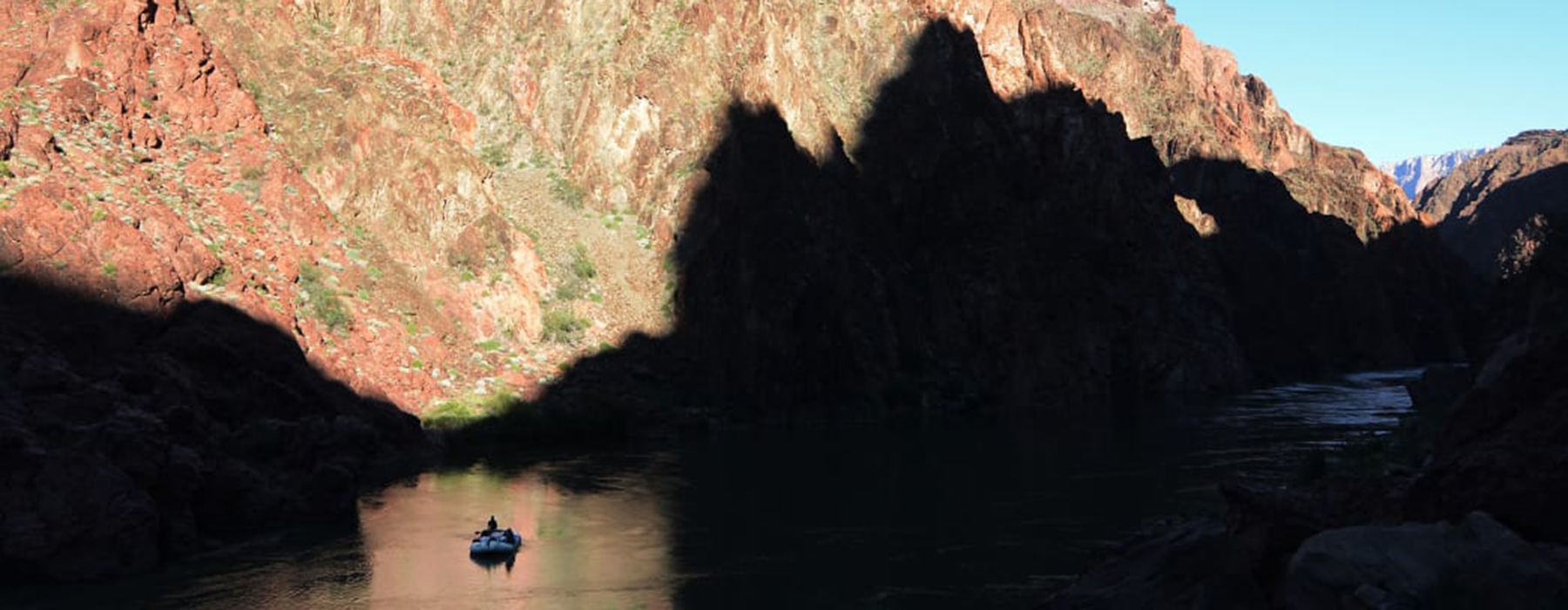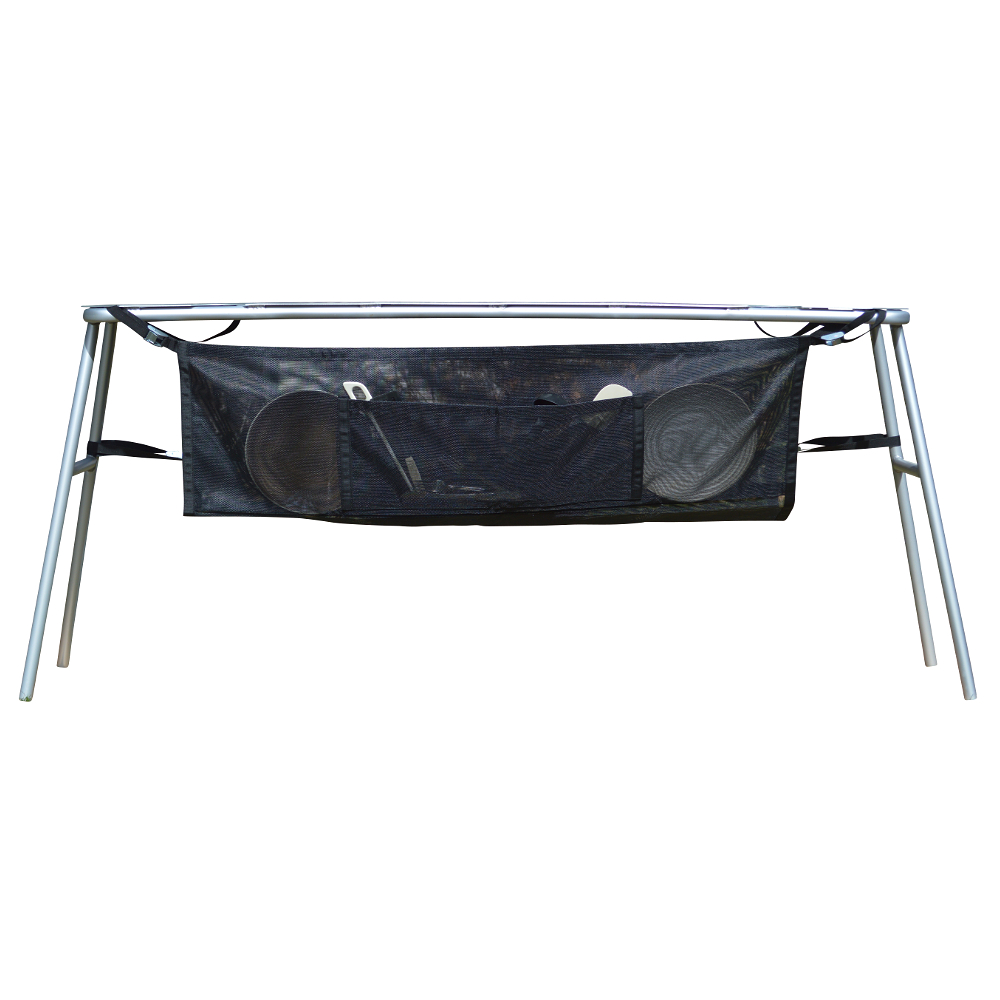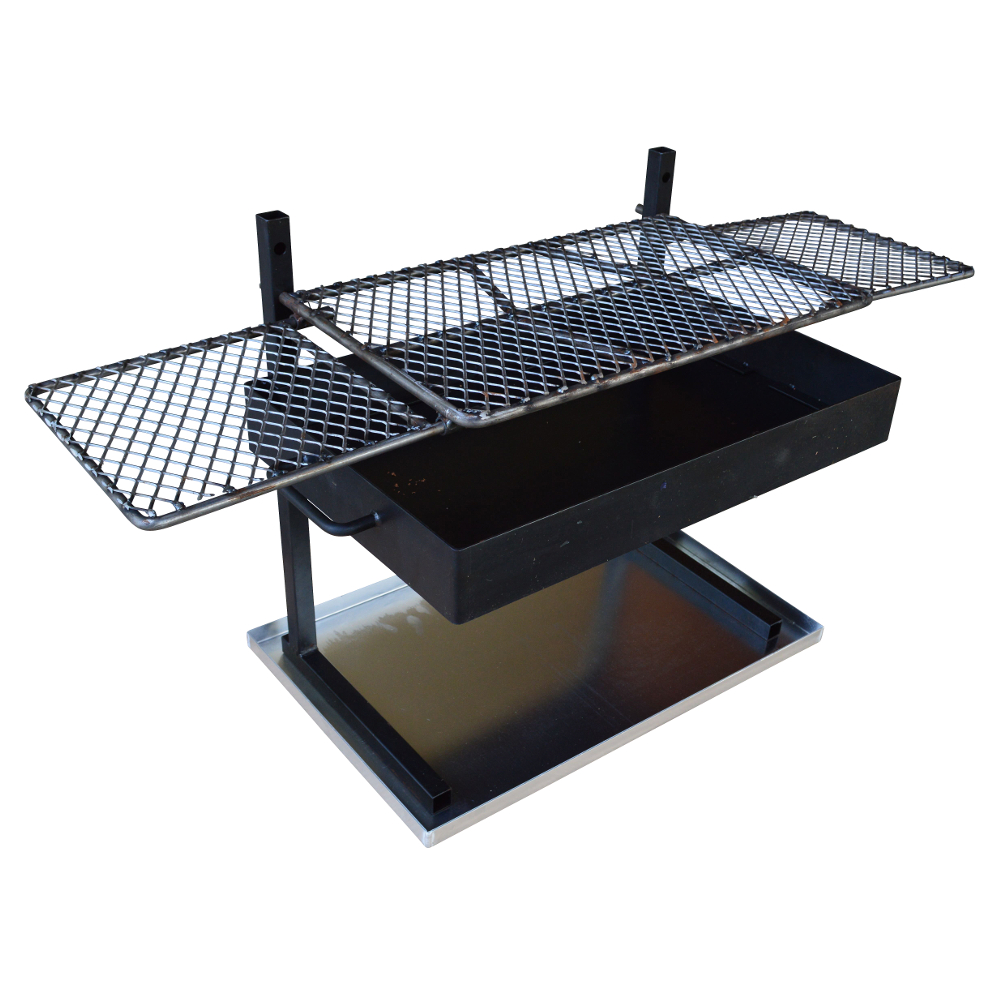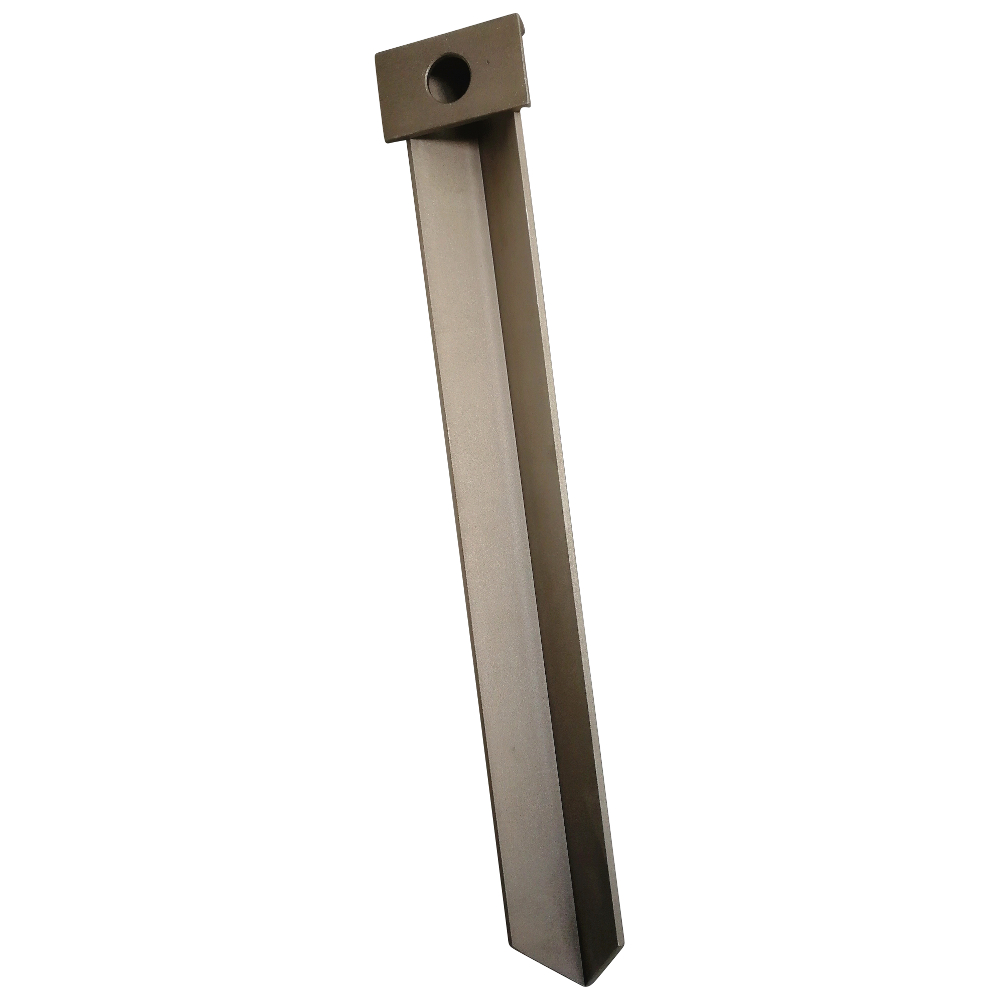As the Colorado River winds through the Grand Canyon, it glides and roars through massive hallways of stone. Around each bend, nature creates a new masterpiece as the sun brushes across the red, rust, and golden walls of the canyon. The striking beauty and big water of the Grand Canyon make it a bucket-list destination for rafters and many other outdoor lovers.
If you want to go rafting in the Grand Canyon, you have two options. You can join a commercial trip, during which guides drive or row the boats, cook meals, and handle most of the other heavy lifting. Or, you can do a private trip where you gather seven to 15 other people (depending on whether you do a standard trip or small trip) and spend two to three weeks navigating yourselves through the canyon. Much like an expedition, a private trip requires you to rig and row boats, set up campsites, and take care of all the other necessary daily tasks.
Private trips are more demanding and complex, and the group must include at least a few with serious rafting chops. But the DIY option offers more freedom than a commercial group. With a private group, you’re in charge of it all: choosing who joins the trip, picking your own campsites, menu creation, how fast (or slow) you’ll run the river. For these and many other reasons, private trips are very popular. To limit the impact on the canyon and create a better experience for paddlers, the National Park Service uses a lottery system to issue only about 460 private permits each year. Because so few permits are available, hopeful trip-goers sometimes wait decades to win one.
If you’re one of those lucky lottery winners or get invited on a private trip, you’re in for the adventure of a lifetime. But, to make your trip memorable for the right reasons, it’s crucial to enter the canyon armed with some vital knowledge (as well as critical supplies and equipment). While the Grand Canyon is beautiful, it can be a harsh environment, and rafting the Colorado River can be more mentally and physically challenging than some other backcountry adventures. So before you embark on your first Grand Canyon rafting trip, keep these 10 insider tips in mind.
1. Prepare for the Long Haul
Depending on the time of year, a private trip can last two weeks or more. Getting off the grid for that long is fantastic, but the length of the trip also poses significant challenges. Many people aren’t used to spending more than a few days in the elements, so they might experience some degree of physical and mental strain. For example, if you get bad blisters a few days into the journey, they probably won’t heal until you’re off the river. So, you have to be prepared to live with aches and pains for several days.
A long backcountry trip can also be mentally and emotionally taxing. Most of us can be nice and put up a good front for a few days. But, when you’ve been in close quarters with the same people for a week or longer, the emotional walls often come down, and true feelings emerge. If someone is annoyed or frustrated, they’re going to let it be known. If you join a private trip, you need to pack plenty of patience, understanding, and respect for others.
2. Be Aware of Group Dynamics

The quality of your trip will depend greatly on the people in the group. If you have a bunch of responsible, easygoing, level-headed folks who like to have fun, you’ll probably have a wonderful time. On the other hand, veterans of the Grand Canyon (or “the Grand” as they like to call it) can tell you stories of outings that went sideways because of a few bad apples or warring factions in the group.
If you have any say in who will be invited, it’s wise to include people with a reputation for being easygoing. Also recommended: keeping a fairly even ratio of men and women to keep the testosterone level in check. Hard-working team-player types are another good bet, since everybody must pitch in. (Some people advise against bringing children or young teenagers because they might not be physically or emotionally mature enough to pull their weight, and every hand is critical.)
You should also be ready to deal with people of different ages. If you’re in your 40s or older, you probably might see things differently than a millennial. Keeping an open mind and being prepared to work closely with others with a different mindset will go far in keeping the group dynamics humming along on a positive note.
3. Don’t Pack Too Light
Whether you love kayaking or backpacking, most of your previous backcountry trips probably required you to pack light. But, that’s not the case with a Grand Canyon rafting trip. You’ll be riding in 18-foot-long boats that can carry plenty of gear and supplies, so there’s no need to sacrifice comfort due to weight. This is especially true when you’re putting together your sleep system. Your comfort on the river will be affected by your ability to get a good night’s sleep. So, go with what works best for you to snag some quality shuteye, whether it’s a thick sleeping pad or a cot. If you have a favorite pillow, bring it. Some even people pack cotton sheets because they can be more comfortable than a sleeping bag on a warm night. And don’t forget the tent in case of rain.
4. Give Your Skin Some TLC
Your skin will take a beating during the course of your adventure from being exposed to cold water and hot, dry air, as well as friction from rowing or pulling straps to rig boats. Over time, the skin on your hands can crack and develop sores. But you can minimize the damage by using plenty of lotions and skin moisturizers. Sunscreen is a must, of course, but be sure to avoid aerosol versions because they can dry out your skin. It’s also a great idea to pack a pair of durable gloves, which come in pretty handy when you’re rigging boats.
5. Prepare for Heat, Cold, and Everything in Between

One minute you’re lounging on your boat like a lizard in the warm sun, and the next you’re shivering from a sudden shower or a cold blast of wind. The Grand is infamous for weather conditions that can change quickly and often throughout the day, so carry a range of layers and protective clothing to stay warm and dry. And definitely pay close attention to hats, since you’ll need more than one. You’ll probably want a wide-brimmed hat for sun protection, a warm wool or fleece hat for cold temperatures, and a ball cap as an option when the wind is too strong for a wide-brimmed hat.
6. Choose Your Footwear Carefully
While you’ll spend several hours sitting in a boat each day, you’ll also be on your feet quite a bit, so you need to choose your footwear carefully. Many people wear sandals in the boat, but booties are a nice option to shield your feet from the sun.
Some people also wear sandals while loading and unloading boats, but just be sure that your feet are accustomed to this kind of footwear, because it’s easy to get blisters. As you carry loads between the boats and camp, you’ll walk up and down steep sand, which can cause sandal straps to rub your feet. If sand gets beneath the straps, it can do a real number on your skin. You might consider wearing booties or other shoes while loading and unloading.
Don’t forget about footwear for the fantastic side hiking you can explore as you make your way down the river. Be sure to pack sandals or other sturdy footwear that will provide good traction, and that you don’t mind getting wet.
7. Bring Electrolytes
To purify water and prevent the spread of bacteria, some people opt to add bleach to drinking water, as well as the water used to clean dishes. But sometimes exposure to bleach can affect a person’s gut bacteria, causing stomach aches and nausea. You can alleviate the symptoms by drinking Gatorade or water that contains some other type of electrolyte powder or solution.
8. Cozy up to Cotton
You’ve probably been warned that, in the backcountry, cotton kills. But, on the Grand, cotton can be a real comfort. While synthetic clothing has become much softer and more comfortable over the years, it can still feel clammy after you’ve worn it for several hours. So, many experienced rafters will actually carry a favorite cotton T-shirt or button-down and other cotton clothes to wear in camp. As with cotton sheets, these super soft clothes will help revive you after a long day in the harsh elements. Just be sure to keep cotton items stored in a dry bag, and don’t remove them until you’re in camp.

9. Plan Parties and Games for Camp
One of the best parts of rafting the Grand is that you’re far from civilization, so people tend to loosen up during downtime at camp, especially after a long day of grueling physical effort. You can make the atmosphere even more fun and festive by throwing theme parties: a superhero shindig, Cinco De Mayo celebration, even a formal night. As you organize the trip, inform group members about themes ahead of time so they can plan accordingly. Easy transportable games are fun, too, and a deck or two of cards is an essential.
Some groups also have contests during which people gain points throughout the trip by completing certain challenges. They could get points for “riding the bull” (sitting on the front of the boat during a rapid) or having the best outfit at a party. If you really want to take it to the next level, you can put together a fun chart to keep track of points, as well as create a silly trophy or prize for the contest winner at the end of the trip.
Some Key Personal Gear
PFD: You’re going to spend a lot of time wearing your PFD, so invest in one that’s really comfortable. Keep in mind that you’re required to use a U.S. Coast Guard-approved type I, III or V PFD. Before your trip, make sure your PFD is in good condition, because park rangers will closely inspect it before you launch.
Sand mat: Sand seems to get into everything when you’re in the canyon. When you get into camp, place your gear (including your tent or sleep system) on a mesh mat so the sand will fall through rather than invading your stuff. High-quality sand mats aren’t cheap, but they’re worth every dollar.
Eyewear: Bring more than one pair of sunglasses in case one goes into the river and a backup pair of eyeglasses. Also be aware that contact lenses can be a challenge in the sandy environment.
Camp chair: Don’t be that person who forgets a camp chair and spends the rest of the trip borrowing seats from other people. You’ll spend hours sitting in camp eating and lounging, so invest in a quality product.
Multiple dry bags: Organize your clothing in a few small dry bags, and then place these small bags inside of a large one. When your things are compartmentalized, you can pull out the smaller bag you need at the moment, rather than digging through a pile of stuff in a huge bag every time you need something.
Dish gloves: Pack the most heavy-duty dishwashing gloves you can find for sterilizing dishes and protecting your hands from hot dishwater. Flimsy gloves will be shredded in a few days.
Rafting the Grand Canyon is an iconic adventure, but it’s also very different from most other wilderness trips. Even if you’ve been exploring the outdoors all your life, the Grand can pose challenges that you may not have previously encountered. It’s important to be prepared so you can take full advantage of this rare opportunity. One thing is for sure—this is one trip you’ll remember for the rest of your life.
Written by Marcus Woolf for Matcha in partnership with Salamander Paddle Gear.
Having the right gear is going to make your Grand Canyon Rafting trip so much more fun. Check out our recommendations.
Camp Table - Our camp table is stable and durable and makes kitchen prep a breeze.
Dish Washing Hammock - Designed to work with our camp table, this item makes drying clean dishes much easier
Fire Pan - Our firepan comes in two dfferent sizes and it includes the lid.
Sand Stake - This sand stake will secure your boat when there is nothing to tie off too.





Comments
Build Your Trip With Advantage Grand Canyon
I like that you said your